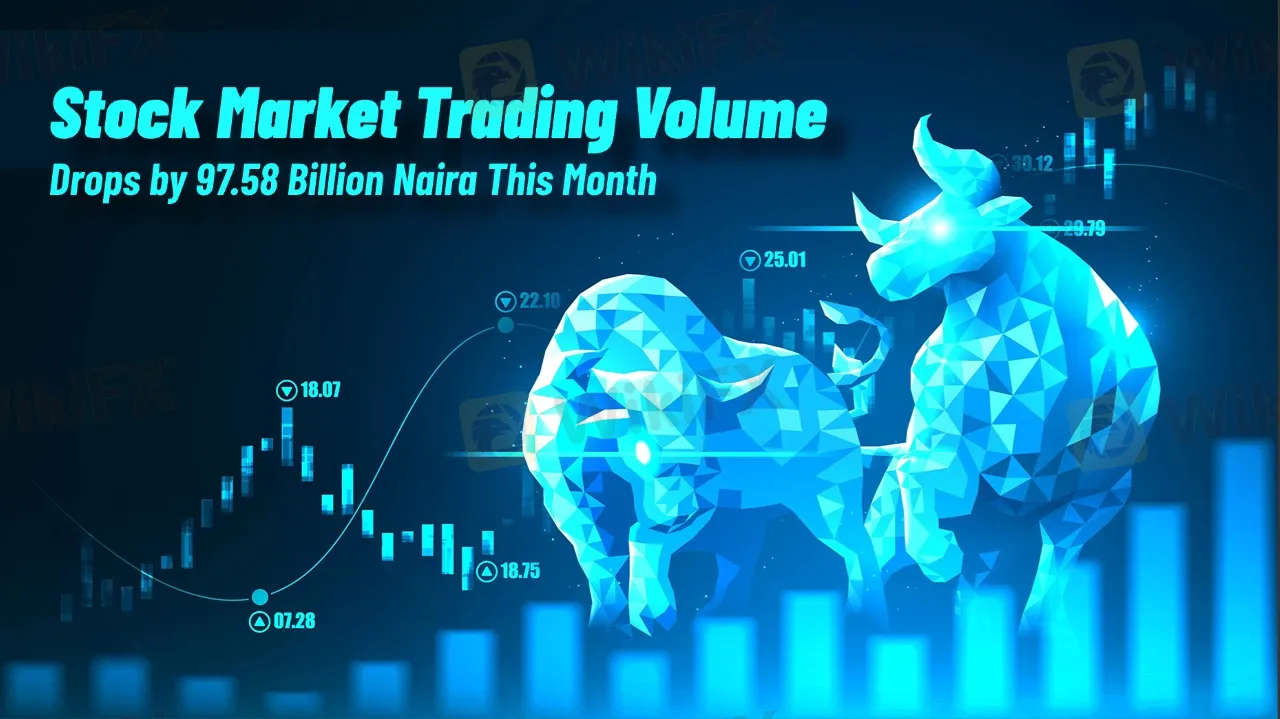简体中文
繁體中文
English
Pусский
日本語
ภาษาไทย
Tiếng Việt
Bahasa Indonesia
Español
हिन्दी
Filippiiniläinen
Français
Deutsch
Português
Türkçe
한국어
العربية
Stock Market Trading Volume Drops by 97.58 Billion Naira This Month
Abstract:In February, Nigeria's stock market trading volume dropped by 97.58 billion naira, with foreign investors pulling back. Can domestic investors sustain the market?

In February 2025, total stock trading volume on the Nigerian Exchange fell to 5,094.7 billion naira, marking a 16.07% decline from January, a drop of 97.58 billion naira.
The decrease was mainly driven by lower market activity, particularly a sharp fluctuation in foreign investments. However, compared to the same period in 2024, trading volume still saw a 42.36% increase, indicating a positive long-term trend.
The key factor behind the fluctuations is the changing behavior of both domestic and foreign investors. While domestic trading fell by 12.83% in February, it remained the dominant force in the market.
Meanwhile, foreign investor participation plummeted by 40.36%, reflecting caution amid market uncertainties. Additionally, retail investors showed reduced activity, while institutional investors maintained a relatively stable influence.
Challenges Ahead for the Market
Looking ahead, uncertainties remain, particularly regarding the long-term impact of foreign capital outflows. Macroeconomic conditions, inflationary pressures, and currency fluctuations could continue to affect market performance.
However, the steady participation of domestic institutional investors may help stabilize the market. Investors should closely monitor market trends and adjust their strategies accordingly to navigate potential risks and opportunities.

Disclaimer:
The views in this article only represent the author's personal views, and do not constitute investment advice on this platform. This platform does not guarantee the accuracy, completeness and timeliness of the information in the article, and will not be liable for any loss caused by the use of or reliance on the information in the article.
Read more

Tariff Headlines Move Markets: What Every Forex Trader Should Know
How does news impact forex trading? From interest rate changes to tariffs, global events influence currency markets daily. This article explains trading strategies for news-driven volatility.

IQCent: Unable to Withdraw? What Investors Need to Know
Recent discussions in online communities have raised serious questions about IQCent—a platform that has come under fire for its alleged withdrawal issues and questionable reliability. According to WikiFX, IQCent has received an alarmingly low trust score of 1.49/10, prompting many investors to rethink their involvement with this platform.

Institutional Trading Accelerates Amid Market Volatility in Q1 2025
As global markets weathered a fresh wave of volatility in early 2025—driven by renewed geopolitical uncertainty and trade policy shifts—institutional trading activity surged across the board. The first quarter ended on a high note, with March delivering a particularly strong performance for both foreign exchange (FX) platforms and electronic brokerages.

Nigeria’s Central Bank Releases 2024 Balance of Payments and Future Targets
In 2024, Nigeria flipped its balance of payments from deficit to surplus—marking a rebound in confidence and policy effectiveness.
WikiFX Broker
Latest News
Swiggy, Zepto: Are 10-minute online deliveries killing the Indian corner shop?
Farewell to the Dollar? Forex Market Speeds Toward De-Dollarization
Innovate Finance Extends Congratulations on WikiEXPO’s Success
Institutional Trading Accelerates Amid Market Volatility in Q1 2025
Tariff Headlines Move Markets: What Every Forex Trader Should Know
Consob Orders Blackout of 7 Abusive Financial and Crypto Websites
Oil Prices Plunge Again: What's Going On in the Market?
Inside the World of Prop Trading | What You Need to Know
Binance Ex-CEO Changpeng Zhao Joins Pakistan's Crypto Council
Lithuania Fines Revolut €3.5M for Money Laundering Failures
Currency Calculator


